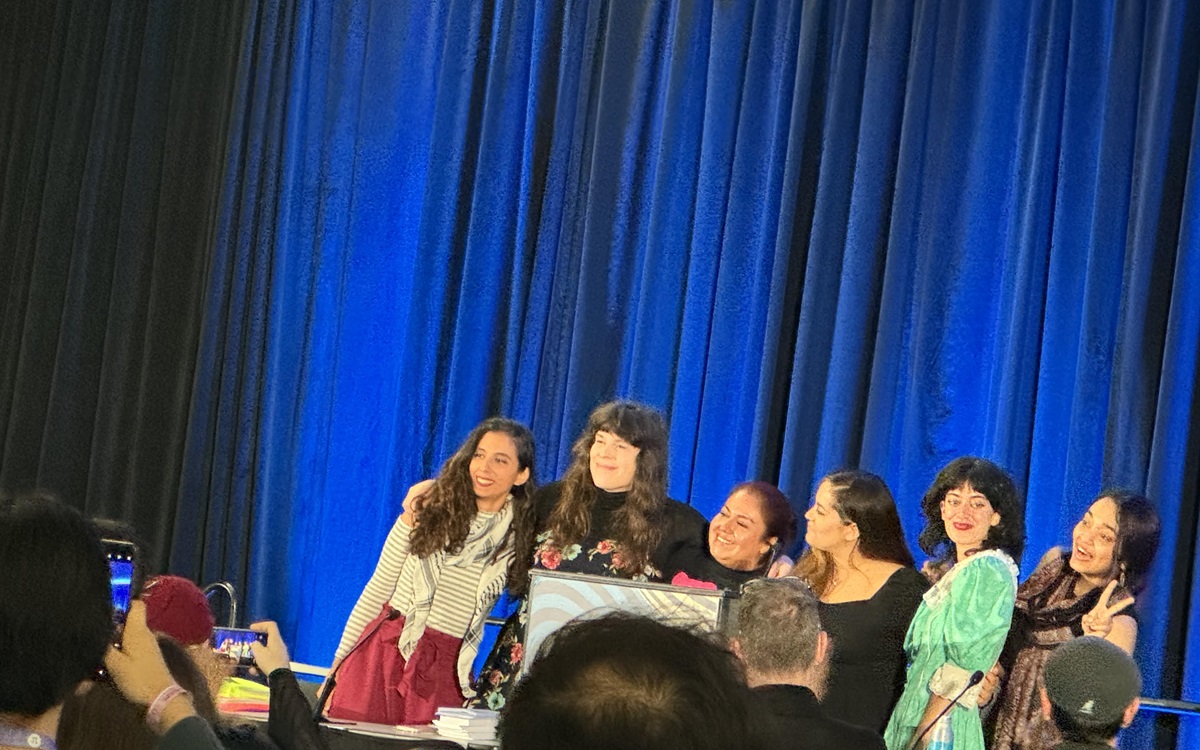
# Table of Contents
1. Introduction
2. The History of the #1ReasonToBe Panel
3. Laia Bee
4. Indrani Ganguly
5. Isabel Vásquez
6. Bahiyya Khan
7. Aevee Bee
8. Alexandra Marzuqa Giacaman
9. FAQs
## Introduction
The #1ReasonToBe panel has made a strong comeback at this year’s Game Developers Conference (GDC), featuring six women from different parts of the gaming world. This panel has a rich history at GDC, showcasing the stories of empowered women in the game industry. Let’s take a closer look at the insights shared by the panelists at the recent GDC session.
## The History of the #1ReasonToBe Panel
The #1ReasonToBe panel was initiated in 2013 by Brenda Romero and Leigh Alexander to highlight the work and ambitions of women in the gaming industry. Over the years, the panel evolved to include geographically diverse voices, shedding light on underrepresented game developers from around the world. After a brief hiatus, the panel made a return at this year’s GDC, organized and moderated by Laia Bee.
## Laia Bee
Laia Bee, the co-founder of Pincer Games and president of the Uruguayan Game Developers Association, played a pivotal role in reviving the #1ReasonToBe panel. She emphasized the importance of listening to diverse voices in the industry and highlighted the real human stories and passion that drive game development.
## Indrani Ganguly
Indrani Ganguly, a queer game designer from Mumbai, India, shared her journey of breaking into the gaming industry. She discussed the challenges of access and representation faced by game developers in India and emphasized the importance of community building and storytelling in game development.
## Isabel Vásquez
Isabel Vásquez, CEO of Pink Bear Games, shared her inspiring story of transitioning from a sales manager to a game producer. She discussed the social impact games being developed by her studio, with a focus on raising awareness about child sexual abuse through interactive storytelling.
## Bahiyya Khan
Bahiyya Khan, a game designer and filmmaker from Johannesburg, South Africa, reflected on the current state of the game industry and global conflicts. She expressed her frustrations with job security and industry challenges, calling for a more compassionate and inclusive approach to game development.
## Aevee Bee
Aevee Bee, a narrative designer and game developer, opened up about her ongoing struggle to create meaningful art in a competitive industry. She emphasized the importance of embracing creativity and authenticity in game development, urging fellow developers to cater to niche audiences and push boundaries in their work.
## Alexandra Marzuqa Giacaman
Alexandra Marzuqa Giacaman, a musician, sound designer, and developer from Chile, shared her journey of overcoming challenges as a woman in the IT and video game industries. She highlighted the importance of self-worth and representation, encouraging aspiring developers to embrace their unique voices and make a difference in the industry.
## FAQs
### 1. What is the significance of the #1ReasonToBe panel at GDC?
The #1ReasonToBe panel showcases the stories and experiences of empowered women in the gaming industry, highlighting diversity and inclusion in game development.
### 2. How has the panel evolved over the years?
The panel has expanded to include geographically diverse voices and underrepresented game developers from around the world, emphasizing the importance of listening to diverse perspectives in the industry.
### 3. What are some key takeaways from the panelists’ discussions at GDC?
The panelists shared their personal journeys, challenges, and aspirations in game development, underscoring the importance of community building, social impact, and creative authenticity in the industry.
In conclusion, the #1ReasonToBe panel at GDC continues to be a platform for empowering voices in the gaming industry, showcasing the diverse stories and passions that drive game developers worldwide. Through their inspiring narratives and insights, the panelists reaffirm the importance of diversity, creativity, and resilience in shaping the future of game development.


















